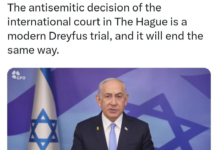![]() Abdel Bari Atwan is one of the Arab World’s most prominent journalists. He is also the editor of the Arabic language website raialyoum
Abdel Bari Atwan is one of the Arab World’s most prominent journalists. He is also the editor of the Arabic language website raialyoum
Veteran Arab journalist Abdel Bari Atwan says that ISIS will continue to target the West because of its own destructive foreign policy.
Islamic State, or Daesh, has claimed responsibility for Thursday’s terrorist attack in the French city of Nice. Mohammad Lahouaiej Bouhel drove his rented 19-tonne truck into a large crowd of people from all nationalities as they watched a firework display to celebrate Bastille Day, killing 84, ten of them children.
A news agency linked to the group, Amaq Agency, tweeted: “He did the attack in response to calls to target the citizens of the coalition that is fighting the Islamic State.”
While it is possible that Bouhel had lost his mind and acted entirely independently, with Islamic State making the claim opportunistically, the attack resembles other attacks and follows an appeal from IS leaders, and before them, al-Qaeda, to use vehicles as weapons in the absence of explosives.
It is likely then that Bouhel was a “lone wolf” operative, “inspired” by IS material which is freely available online. It is suspected that he had at least one accomplice.
What must worry Western authorities most is that Bouhel had no history to suggest he was an extremist or had been recently radicalized. He was known to police for petty criminality and violence.
Subscribe to our newsletter and stay updated on the latest news and updates from around the Muslim world!
Islamophobia
The right-wing is becoming resurgent in Europe and the US; attacks such as Friday’s play into Islamophobes’ hands. Even before IS claimed responsibility, French President François Hollande declared this to be the product of “Islamic extremism.” The majority of Europe’s ten million Muslims are peaceful, law-abiding citizens and yet they feel increasingly under suspicion and fear for their own and their families’ safety.
IS is using Islamophobia deliberately to provoke even greater schisms in Western societies, seeking to bring them into the chaos that now engulfs much of the Middle East and North Africa. It is a terrible irony that those who incite against Muslims are doing the work of IS for them.

We don’t deny that there is a radical element which have lauded Friday’s atrocity and there are even some who have pledged allegiance or sympathy with IS.
Nevertheless, the profile of people like Bouhel or the cell which carried out the Brussels transport bombs in March suggest that often the perpetrators are suffering from psychological and social problems. Many of them have a criminal history and come from deprived areas on the outskirts of capital cities where they experience life as alienated, brutal and unfair. The rage which results may in some cases, one may venture, be coupled with psychological problems which have escaped diagnosis and treatment.
Such young people, struggling with issues around political and religious identity, and facing cultural schizophrenia makes them the easiest target for online recruiters on Facebook, Twitter etc who urge them to “repent” and atone for their non-Islamic past by carrying out such terrorist acts.
In addition to online platforms, a lot of radicalization occurs in jails where extremists convert criminals with a Muslim background by playing on their need to belong to a strong, violent group mostly for reasons of protection but also for social and identity reasons. In the language of the extremists, the West is portrayed as “Crusaders” who have to be battled.
Chaos and war
The Middle East is currently embroiled in chaos and war. The West cannot abnegate its responsibility in terms of politics or the destructive, lethal power of the weapons and bombs it uses against Muslims in their own lands. The rationale of groups like IS is that this asymmetry is repaid by the asymetric tactic of unexpected terrorist outrages on Western targets.
Western policies and interventions have directly or indirectly led to five failed states in the MENA region, as well as the introduction of sectarian and ethnic divisions; these wars are intended to dismember states and societies in order to prevent a strong Arab identity and military profile.
It is easy to focus on the idea of “Islamic terrorism” but who dares mention the background to this terrorism? Simply stating this is the work of an Islamic terrorist, as Hollande did on Friday, is like taking a painkiller without wondering about, and dealing with, the cause of the pain.
The West continues to underestimate IS and to consider it can be bombed and attacked out of existence. But it is not a physical state so much as an ideological state intent on destruction, fuelled by implacable hatred and vengeance.
IS seeks to devastate Western security, societal cohesion and economies by creating murderous havoc as it has, apparently, done this week in Nice.
Islamic State is under pressure from Western airplanes and weapons in its heartland in Syria, Iraq and Libya. Its leaders have repeatedly called for attacks on Western targets to avenge the deaths of Muslim civilians and the loss of their territories. We are not, therefore, surprised that there has been a spate of attacks in the US, Europe and Turkey and sadly believe there is more to come because IS is now exporting its terror in a way no other group has ever done.




















